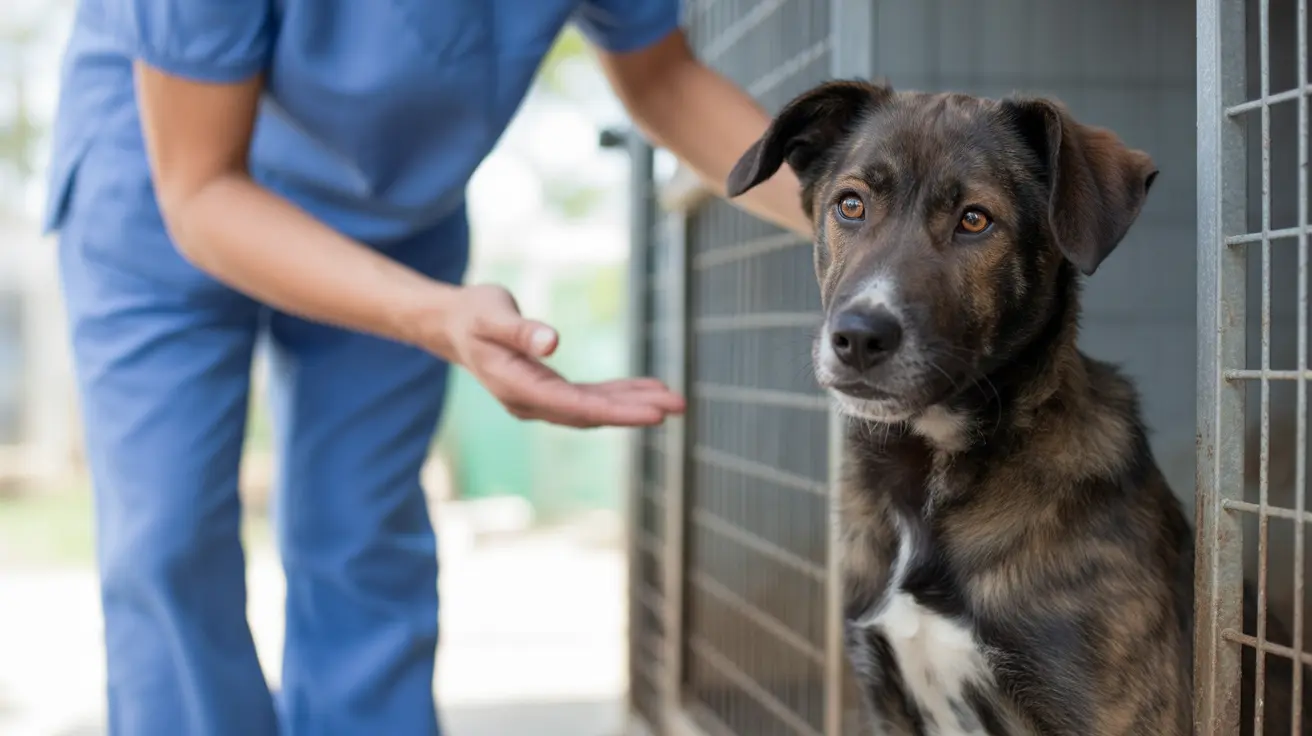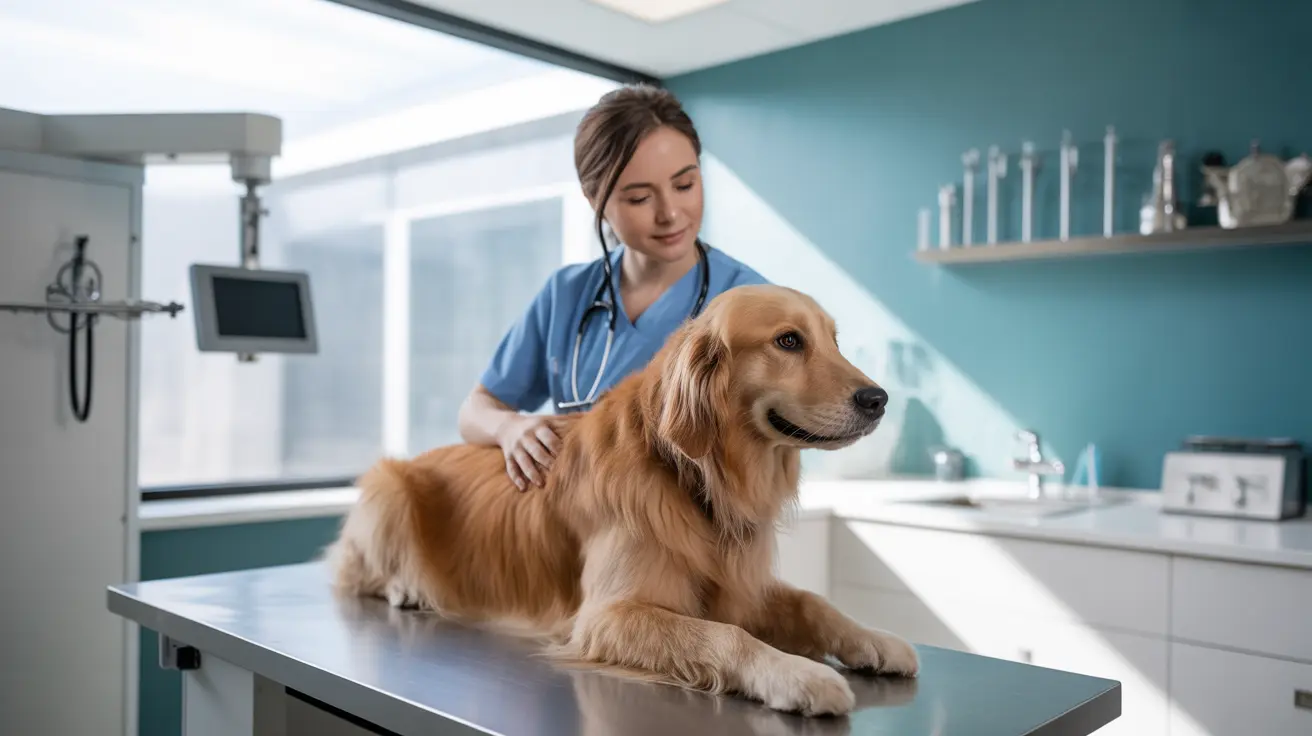Recognizing the Symptoms of Cryptosporidium Infection in Dogs
Cryptosporidiosis is an intestinal disease caused by protozoan parasites from the genus Cryptosporidium. While it can affect many animals worldwide—including dogs—most healthy adult dogs show no symptoms. However, puppies, older dogs, or those with weakened immune systems may develop noticeable signs.
How Dogs Get Infected
The primary way dogs become infected is by ingesting oocysts (the infective stage of the parasite) through contaminated water, food, soil, or surfaces. These oocysts are shed in feces and can survive for months in cool or moist environments. They're tough to kill and resist many common disinfectants—even chlorine.
Common Symptoms in Dogs
Most healthy adult dogs exposed to Cryptosporidium don't get sick. If symptoms do appear, they're usually seen in puppies, elderly dogs, or those whose immune systems aren't working well. The main clinical signs include:
- Watery diarrhea: This is the most common symptom and can be persistent or severe.
- Lack of appetite: Infected dogs may refuse food or eat much less than usual.
- Weight loss: Ongoing diarrhea and reduced food intake can lead to noticeable weight loss.
- Lethargy: Dogs may seem tired or less active than normal.
- Dehydration: Due to fluid loss from diarrhea; this can become serious quickly in puppies.
- Fever: Occasionally present but not always seen.
If a puppy or immunocompromised dog develops severe and persistent diarrhea, dehydration and weight loss can follow. Without proper care, these complications could be life-threatening.
The Disease Process
After a dog ingests oocysts, these microscopic parasites release sporozoites that invade intestinal cells. Inside these cells, they multiply and produce more oocysts—some are shed into the environment while others re-infect the same host. This self-perpetuating cycle explains why some infections linger longer than others.
Diagnosing Cryptosporidiosis
The parasite is tiny and often missed with standard fecal flotation tests. Specialized diagnostic methods include:
- Microscopy with acid-fast stains (like Ziehl-Neelsen)
- Phase-contrast microscopy
- Enzyme-linked immunosorbent assay (ELISA) for parasite proteins
- PCR testing for parasite DNA
- Fluorescent antibody tests
Your veterinarian will usually recommend these tests if your dog has persistent diarrhea—especially if they're young or have a weakened immune system.
Treatment Approaches
If your dog is otherwise healthy, infection often clears up on its own with supportive care (like hydration and electrolyte replacement). For severe cases—or for at-risk animals—veterinarians might use medications such as azithromycin or paromomycin. Anti-diarrheal therapies, special diets, and probiotics may also help speed recovery. Complete eradication of the parasite is difficult; treatment focuses on controlling symptoms rather than curing the infection outright.
Prognosis: What to Expect
The good news? Most dogs recover within days to two weeks—especially with prompt supportive care. Puppies and immunocompromised pets may take longer but generally improve with veterinary attention. Rarely, some dogs may relapse or continue shedding oocysts after apparent recovery; repeat testing may be needed if symptoms return.
Avoiding Infection & Protecting Your Dog
- Bathe your dog if they've been exposed to contaminated environments.
- Avoid letting pets drink from standing water sources like ponds or puddles.
- Cleans surfaces regularly using effective disinfectants (ammonia-based products or boiling water work best).
Puppies are especially vulnerable—keep their living areas clean and remove feces promptly. Good hygiene practices protect both pets and people (especially children or anyone with a weakened immune system).
Zoonotic Risk: Can People Catch It From Dogs?
The species most commonly found in dogs (C. canis) rarely infects humans except those who are severely immunocompromised. Most human cases come from other species (C. hominis, C. parvum) via contaminated water rather than direct contact with pets. Still, it's wise to wash hands thoroughly after handling your dog's waste—just to be safe.
The Bottom Line for Pet Owners
- If you notice watery diarrhea—especially in a puppy—contact your veterinarian promptly.
- Keen observation helps catch dehydration early; look for sunken eyes, dry gums, or listlessness.
Your vet will guide you through diagnosis and supportive care options tailored to your dog's needs. With attentive management at home (and professional help when needed), most dogs bounce back quickly from cryptosporidiosis—even if their first few days are rougher than usual!





